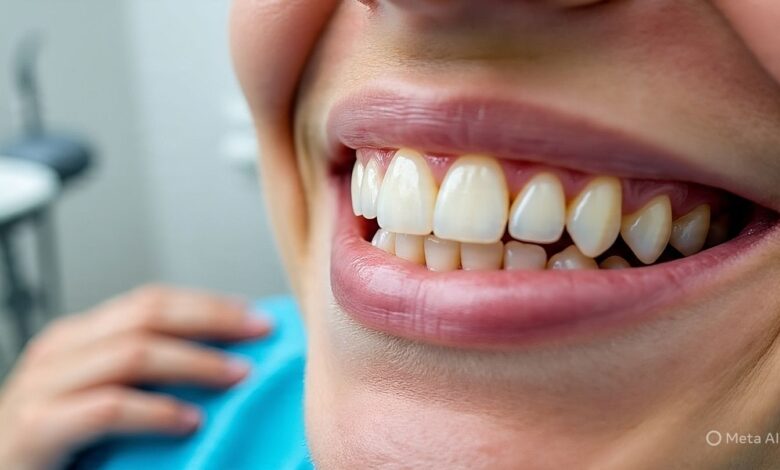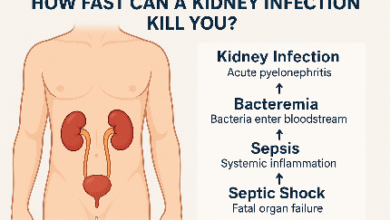8 Clear Signs You Might Need Dental Implants

8 Clear Signs You Might Need Dental Implants
Your smile says a lot about you. It’s often the first thing people notice and can influence how confident you feel in both personal and professional situations. But what happens when your teeth don’t feel or look their best? Missing, damaged, or unstable teeth can take a serious toll on your daily life, from eating your favorite foods to simply feeling comfortable in social settings. This is where dental implants come in. Unlike temporary fixes, dental implants offer a permanent solution that not only restores your smile but also protects your long-term oral health. If you’ve been wondering whether implants are the right choice for you, here are 8 Clear Signs You Might Need Dental Implants.
What Are Dental Implants?
Before diving into the signs, let’s take a quick look at what dental implants actually are.
Dental implants are small titanium posts that act like artificial tooth roots. They are surgically placed into the jawbone, where they fuse naturally with the bone. Once healed, a crown, bridge, or denture is attached to the implant, creating a replacement that looks and functions like a natural tooth.
Unlike traditional dentures or bridges, implants are permanent, durable, and designed to preserve jawbone health. They don’t slip, don’t need adhesives, and can last for decades with proper care.
Now, let’s break down the 8 major signs that could mean dental implants are right for you.
1. You Have Missing Teeth
One of the most obvious signs is the presence of gaps in your smile. Missing teeth aren’t just a cosmetic concern—they can affect how you chew, speak, and even the health of your remaining teeth.
-
Chewing Problems: A single missing tooth can throw off your bite, forcing you to chew differently and sometimes leading to digestive issues.
-
Shifting Teeth: Over time, surrounding teeth may move into the empty space, creating misalignment.
-
Self-Confidence: A gap in your smile often makes people hesitant to laugh or talk freely.
Dental implants restore both appearance and function. They fill the gap with a natural-looking replacement that blends seamlessly with your existing teeth.
2. Your Dentures Are Uncomfortable or Loose
Traditional dentures are a common solution for missing teeth, but they come with their own set of challenges. If you’ve worn dentures for a while, you may already know the frustrations:
-
Slipping or shifting while talking or eating.
-
Gum irritation and sore spots.
-
Needing adhesives or pastes to keep them in place.
Dental implants eliminate these issues. Instead of sitting on top of the gums, implants anchor firmly into the jawbone, providing stability that feels just like natural teeth. No more embarrassing slips at dinner, no more discomfort, just a strong and reliable bite.
3. Difficulty Chewing or Eating Certain Foods
Do you find yourself avoiding crunchy apples, steak, or even something as simple as corn on the cob? If chewing is a struggle, your teeth may not be providing the support they should.
This often happens when teeth are weak, damaged, or missing. Over time, avoiding certain foods can affect nutrition and overall health.
With implants, you can regain the ability to eat a balanced diet without restrictions. Implants restore natural chewing strength, making it possible to enjoy the foods you love without worry.
4. Severe Tooth Decay or Damaged Teeth
Sometimes, teeth become so damaged that fillings, crowns, or root canals aren’t enough to save them. Severe decay, fractures, or repeated infections can leave teeth beyond repair.
In these cases, dental implants may be the best solution. Instead of patching up a tooth that will continue to fail, replacing it with a strong, stable implant can restore health and function for the long term.
Think of it as a fresh start for your smile, no more temporary fixes, just a permanent solution.
5. Jawbone Deterioration or Bone Loss
Many people don’t realize that missing teeth can lead to jawbone loss. When a tooth is missing, the jawbone beneath it no longer receives the stimulation it needs from chewing. Over time, this can cause the bone to shrink and weaken, a process known as bone resorption.
The longer you wait to replace a missing tooth, the more bone you lose. This not only affects your oral health but can also make it harder to get implants later on.
Here’s the good news: dental implants help preserve and even stimulate the jawbone. Because they function like natural tooth roots, they keep the bone strong and prevent further deterioration.
6. Changes in Facial Appearance
Have you noticed your face looking more sunken, saggy, or aged? This is often a direct result of tooth loss and bone deterioration. When the jawbone shrinks, it alters the shape of your face, making you appear older than you are.
Dental implants don’t just give you back your teeth, they help maintain your natural facial structure. By keeping the jawbone healthy and providing support, implants prevent that hollow, collapsed look that often comes with missing teeth.
7. Difficulty Speaking Clearly
Your teeth play a big role in speech. Missing teeth or poorly fitted dentures can cause slurring, mumbling, or whistling sounds. This can be frustrating and sometimes even embarrassing.
With dental implants, speech becomes clearer because the replacement teeth are stable and secure. No slipping, no clicking, just natural, confident speaking.
8. Low Self-Confidence About Your Smile
Perhaps the most overlooked yet powerful sign is how you feel about your smile. If you find yourself avoiding photos, covering your mouth when you laugh, or holding back in social situations, it may be time to consider implants.
Confidence matters. Dental implants not only restore functionality but also give you the freedom to smile, laugh, and live life without holding back.
Additional Benefits of Dental Implants
Beyond solving these eight issues, dental implants come with several long-term benefits:
-
Durability: With proper care, implants can last 20+ years, often a lifetime.
-
Natural Look and Feel: Implants are designed to blend in seamlessly.
-
No Special Care: You brush and floss them just like natural teeth.
-
Improved Oral Health: Implants help keep surrounding teeth and gums healthier by maintaining structure.
Who Is a Good Candidate for Dental Implants?
Not everyone may qualify for implants right away, but most people can become good candidates with proper treatment. Generally, you may be a candidate if:
-
You have healthy gums.
-
Your jawbone is strong enough to support implants (or can be strengthened with a bone graft).
-
You are in good overall health.
-
You maintain good oral hygiene habits.
Certain lifestyle factors, like smoking or untreated gum disease, may affect success rates, but a skilled dentist can guide you on the best path forward.
Conclusion
Dental issues shouldn’t be ignored. Whether it’s missing teeth, loose dentures, or a drop in confidence, these are all signs that your oral health needs attention. Dental implants are more than just cosmetic, they’re a long-term investment in your overall health, comfort, and quality of life.
If any of these 8 signs sound familiar, it may be time to speak with your dentist about whether implants are right for you. The sooner you take action, the sooner you can enjoy the benefits of a confident, healthy smile.
FAQs
How long do dental implants last?
With proper care, they can last a lifetime, though the crown may need replacement after 15–20 years.
Are dental implants painful to get?
Most patients experience only mild discomfort during recovery. Local anesthesia and sedation make the procedure manageable.
How much do dental implants typically cost?
Costs vary depending on the number of implants, your location, and additional procedures like bone grafting. Your dentist can provide a detailed estimate.
Can anyone get dental implants?
Most healthy adults can, but people with uncontrolled diabetes, gum disease, or heavy smoking habits may need additional preparation.
How do I care for my implants?
Brush, floss, and see your dentist regularly, just like with natural teeth.





512hvf
88dphw
Hi, i feel that i noticed you visited my website thus i got here to “return the desire”.I’m attempting to find things to improve my website!I guess its adequate to make use of a few of your ideas!!
Your house is valueble for me. Thanks!…